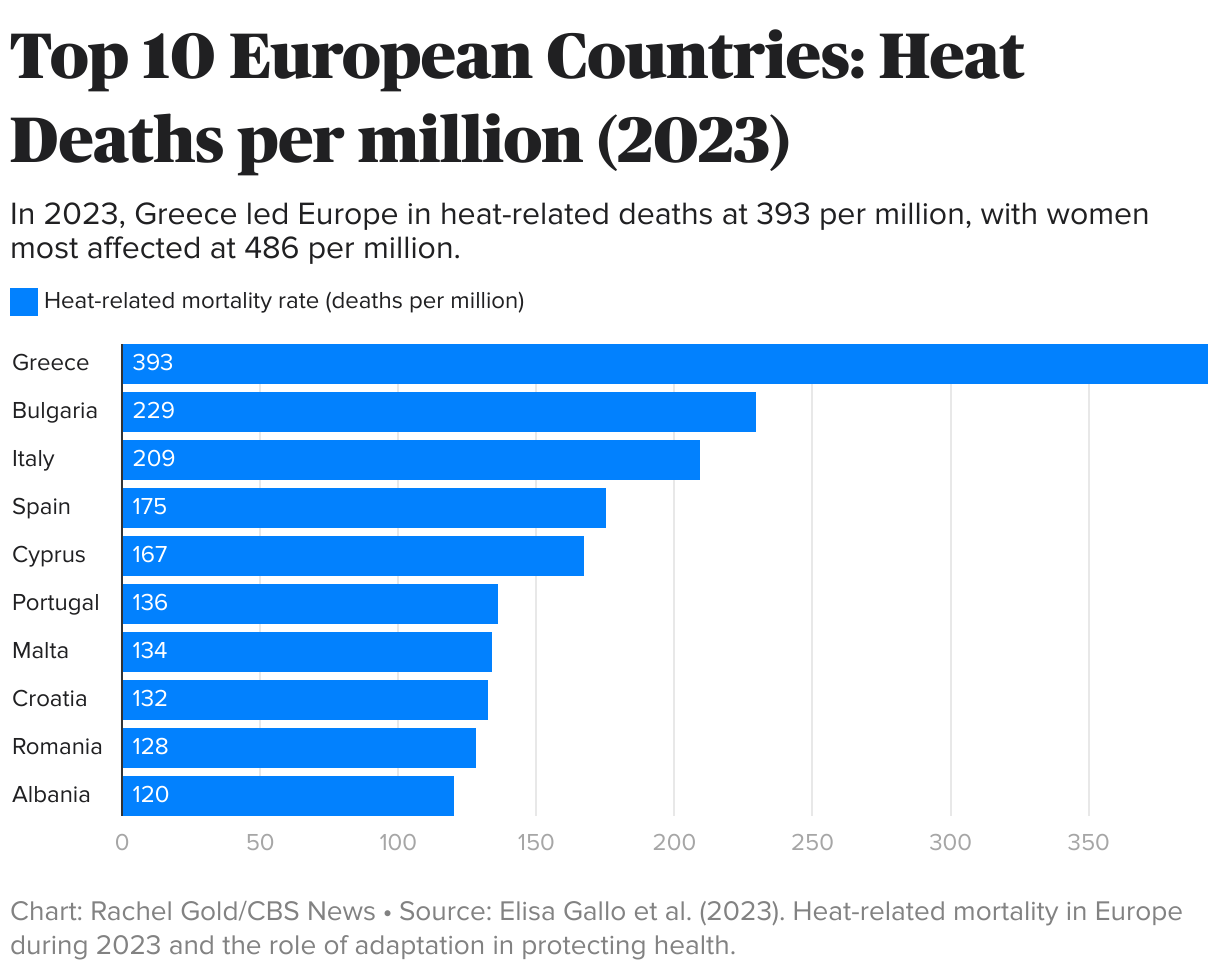
More than 47,000 people died in Europe last year due to heat, study estimates. Here are the countries most impacted.
Over 47,000 people died in Europe last year due to heat, a new report published Monday in Nature Medicine estimates. The study was led by the Barcelona Institute for Global Health (ISGlobal), which looked at a trove of historical temperature and mortality records from 35 different countries to make its calculations.
The year 2023 broke records for being the hottest year to date, and experts think 2024 could be next: The National Oceanic and Atmospheric Administration said there is a one-in-three chance that this year will be warmer than 2023.
Researchers for the Nature Medicine study stipulated the 47,690 estimated deaths occurred between late May and early October, with over half occurring during just two high heat episodes in mid-July and late August.
number of visitors to the continent increased a whopping 55% from 2022 to 2023.
Droughts, wildfires and high temperatures continue to affect desirable destinations like Greece, which recently captured national attention after a series of hikers went missing or were found dead amid a brutal heat wave. The mediterranean country has also had to contend with a spate of wildfires, including one currently encroaching on Athens.
The total number of heat-related deaths in Europe —like anywhere— is difficult to parse. The researchers even cautioned that their own findings may underestimate the heat-related mortality burden.
Experts say heat-related deaths and illnesses are likely undercounted. That’s because while heat may play a role in someone’s death, it is often not recorded as the primary cause of death, unless it’s a heat stroke.
“People may present to the emergency department or the hospital with a heart attack, stroke, asthma attack, or kidney failure, and heat is often not recorded in medical records as the underlying cause,” said Dr. Gounder.
Kristie Ebi, an epidemiologist and professor of global health at the University of Washington, did not work directly on the study but said that the approach used, known as “excess death analysis,” is a much more accurate way to measure the risks people face from exposure to high temperatures.
“[It] provides insights that can be quite useful for the magnitude of the challenge, without trying to decide at the individual level if this heart attack was exacerbated by the heat, but that one was not,” she said.
The Department of Health and Human Services says there were 2,302 heat-related deaths in the United States in 2023. Of note: these were recorded deaths, not estimations like the Nature Medicine study. There is no comparable estimate for the United States.
Ebi cautions that if the United States’ heat-related death counts aren’t accurate, the country won’t spend enough on the emergency hospital services, cooling centers, and other interventions necessary to save lives.
“If there’s just 2000 deaths from heat, then there is limited incentive for investment,” she said.
More
More
Source: cbsnews.com